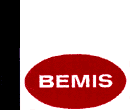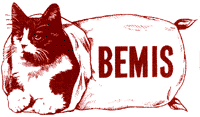
Bemis Company, Inc.
Multiwall and Consumer Paper Packaging
The Multiwall and Consumer Paper Packaging Plant in Vancouver, Washington is the largest plant in the Paper Bag Division of Bemis Company, Inc., a $1.5 billion international corporation with headquarters in Minneapolis, Minnesota. The Vancouver plant, which manufactures multiwall industrial size shipping sacks and small paper consumer bags commonly used for foodstuffs and industrial goods, has made tremendous progress in recent years towards preventing pollution and reducing waste and its associated costs. Much of their success can be attributed to the efforts of plant engineer, Guy Davis, who has been given the freedom and opportunity to apply his talents to improve the manufacturing process.Bemis Company, Inc. was founded in 1858 in St. Louis, Missouri. Since its early beginnings manufacturing cloth flour bags, the company has expanded to all forms of flexible packaging, packaging machinery, and specialty coated and graphics products. The Vancouver plant operates with a noteworthy level of autonomy to service approximately 400 customers in about 40 different industries. The plant employs approximately 350 people operating on three shifts, five days a week. Multiwall bags are complicated packages typically containing up to five layers, and often containing aluminized films or polyester layers for specific moisture or freshness protection.

Quality Management
In a highly competitive industry, Bemis set out to provide exceptional value to their customers by providing a high quality product at a reasonable price. So in 1992, Bemis Company began a team-based quality commitment campaign aimed to provide Total Customer Satisfaction. Although pollution prevention activities in response to regulatory concerns started before the formalized quality improvement process took effect, it soon became clear that eliminating unnecessary chemicals and polluting processes from the plant also made economic sense. Plant Manager Lee Cook is the first to admit that the primary motivation for environmental initiatives beyond compliance is cost savings. But the Vancouver plant has also made tremendous progress in cutting emissions and waste generation through comprehensive recycling and process changes.Closing the Loop
Perhaps the most dramatic example of environmental success at the Vancouver plant has been to achieve 98.5 percent recycling and reclamation of the water used to clean ink from the printing machinery. A diatomaceous earth treatment system was first installed in 1987. The system now treats 1.3 million pounds of wastewater annually. And although they are still classified by the state as a large-quantity generator, nearly all of the water gets recycled, with the diatomaceous filter media tested and disposed in a standard sanitary landfill. The efficiency of the system has far exceeded expectations. By treating and recycling the water, the company has reduced water consumption by 170,000 gallons per year and realized substantial cost savings in the purchase and discharge of water.Elimination of Solvents
The Vancouver plant has also completely eliminated cleaning solvents (such as methyl ethyl ketone, toluene, lacquer thinner and methylene chloride). Instead, they have moved to citrus-based cleaners and biodegradable soaps. They also discontinued their use of solvent-based adhesives. Instead, they make their own starch and water-based glue. Not only does it save them money, it also ensures that the glues are fresh and free from bacteria, and reduces handling since the glue is pumped throughout the factory directly from the mixing vat.Eliminating solvents is also important since most of the bags are used in packaging foodstuffs. The Vancouver plant is certified by the American Institute of Bakeries (AIB). Although AIB is an industry group that promotes education and research in the science and art of baking, its standards for sanitation and safety are widely regarded in the food processing industry. As a large supplier to the food industry, Vancouver takes pride in its affiliation with AIB.